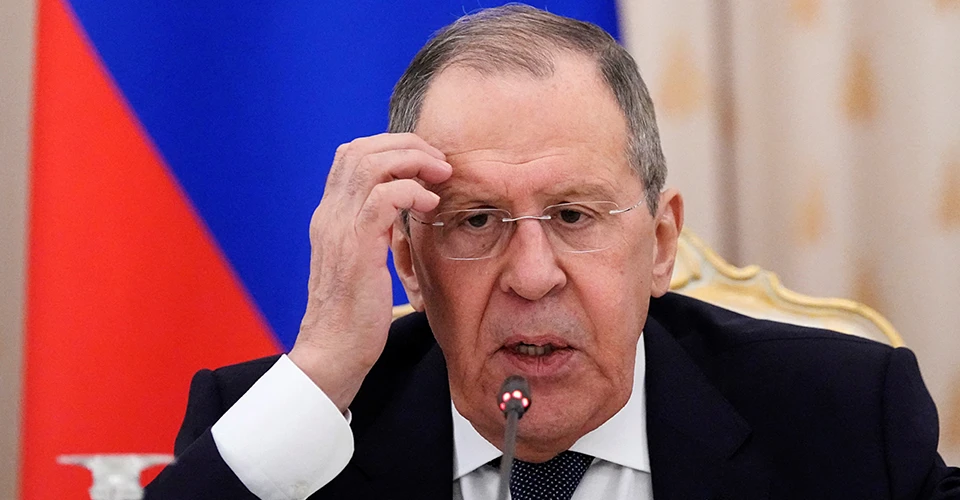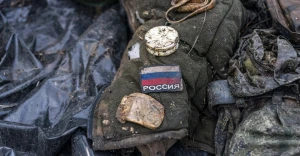
Lavrov holds secret talks with former US officials on terms of ending war in Ukraine, US responds
The US Department of State and the White House says that President Joe Biden's administration has not authorize informal talks with Russia on Ukraine
State Department spokesman and White House National Security Council spokesman. John Kirby, reported the information, according to Reuters.
The White House reportedly did not support the meetings allegedly held by former US officials with Russian representatives to end the war in Ukraine.
"The Biden administration did not sanction those discussions. And as we've said repeatedly, nothing about Ukraine without Ukraine," the spokesman said.
The spokesman was referring to the Biden administration's policy of not discussing possible negotiations to end the war without the involvement of Ukrainian officials.
Instead, he also added that the administration would continue to provide weapons to Kyiv so that Ukrainian officials "can negotiate from a position of strength when they think the time is right."
Instead, White House National Security Advisor John Kirby said that the White House was aware of the informal discussions.
“But I want to make it clear that these discussions were not encouraged or engendered by us and we were not supporting them in any active way. As the president has said, nothing about Ukraine without Ukraine," he said.
Earlier, NBC News reported that a group of former senior US officials held an informal meeting with Russian Foreign Minister Sergey Lavrov in April to "lay the groundwork for potential talks to end the war in Ukraine."
According to media reports, the talks took place during Lavrov's visit to New York, when Russia was presiding over the UN Security Council. Neither the US nor the Russian side has officially commented on or confirmed the meeting.
As NBC News found out, the American side was represented by Richard Haass, the current chairman of the Council on Foreign Relations, a leading American think tank; European expert Charles Kupchan; and Russia expert Thomas Graham.
All of them had previously worked in the White House or the US State Department; NBC News reports that some former Pentagon officials also joined the discussion.
On the Russian side, in addition to Lavrov, there were scientists, heads of major think tanks and research institutes, etc., who allegedly have influence on Putin's decision-making or have contacts with the Kremlin.
According to NBC News sources, the purpose of such contacts was to keep channels of communication open with Russia where possible and to explore opportunities for future negotiations, compromises and diplomacy to end the war.
Richard Haass and Charles Kupchan have long promoted narratives about the need to start negotiations between Russia and Ukraine as soon as possible and to manage risks in the issue of American military assistance to Kyiv.
For example, back in May 2022 (when Russia occupied Kherson and part of Kharkiv region), Kupchan argued in an article for The Atlantic that a ceasefire was needed to avoid risks.
And Haas is the author of the concept of 'sovereign obligation' (described in detail in his work "A World in Turmoil", which was also published in Ukrainian), which implies the actual ceding of certain regions to superpowers in order to achieve a balance in the world (he included Russia among such states).
Around the same time that Haas and Kupchan were participating in the talks with Lavrov, they published a lengthy article in the leading foreign policy media Foreign Affairs, outlining "a plan to move from the battlefield to the negotiating table." In short, it called for an immediate ceasefire, the creation of a 'demilitarized zone' in Ukraine, and the start of peace talks.
In a comment to NBC News, the Ukrainian President's Office said it would not comment on reports from sources about talks between the United States and Russia, but Kyiv's position remains unchanged: "The fate of Ukraine cannot be decided without Ukraine. Many times the president and all our official speakers spoke about it. Not anonymously, but quite specifically and publicly."
Russian Foreign Ministry spokeswoman Maria Zakharova, after the NBC News story was published, called the information about the talks with Lavrov's participation a fake.
-
On January 26, Volodymyr Zelenskyy said that he could return to the negotiating table with Russia only after the withdrawal of troops and Moscow's admission of mistakes.
-
On February 11, Russian Deputy Foreign Minister Sergei Vershinin said that Moscow was ready to start negotiations with Ukraine on the basis of the reality that exists today.
-
On February 23, Kuleba presented a draft resolution on the principles of peace in Ukraine to the UN.
-
At the same time, in February, China presented its version of the 'peace plan.' The visit of their special representative to Kyiv and Moscow did not lead to any progress in the negotiations.
-
On May 16, South African President Cyril Ramaphosa said that African countries had proposed a peace initiative to help end the conflict between Russia and Ukraine. On June 10, Chinese President Xi Jinping, in a telephone conversation with the South African president, said he supported the peace initiatives of African leaders regarding Ukraine.
-
On June 22, during the Indian leader's visit to the United States, Biden and Modi signed a joint statement on Ukraine. During the visit, Modi promised to work to achieve peace in Ukraine, without using the word 'war.'
-
In late April, Pope Francis announced that the Vatican was participating in a peacekeeping mission to try to end the conflict between Russia and Ukraine. In early June, Cardinal Zuppi visited Kyiv and met with President Volodymyr Zelenskyy. Ombudsman Dmytro Lubinets told the Vatican representative about the murders, rapes, and abductions of Ukrainian children by the Russian military. On June 28, the Pope's special envoy arrived in Moscow.
- News













































